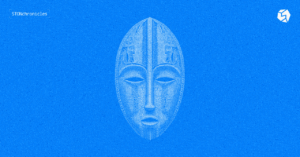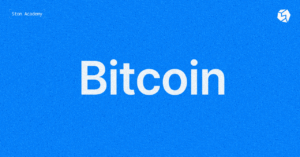As part of the “Blockchain Pop” section, we allow ourselves to imagine our digital future. We analyzed the news regarding the potential integration of blockchain technologies into social networks. What will it look like? What advantages can blockchain give to familiar social networks?
In this article, although we operate with facts from the latest news of the digital world, we still do not predict the future and do not make statements. We want to discuss the possible integration of blockchain and social networks and share ideas and our vision with you.
Twitter positions itself as a platform for effective microblogging. It is also convenient to follow the news of projects and people you are interested in, exchange opinions, interact with your audience, and attract new readers. And the emphasis on the conciseness of the information provided (240 characters per tweet – and once there were half as many!) instead of extensive blogs and longreads, ensures an unceasing stream of posts in the user’s feed. Twitter has been working great since 2006, containing entire communities, from multi-million fans to small interest groups, and during this time the social network has not acquired any competitors.
But it is precisely in the management of communities of interest that Twitter’s main problem lies. In addition to football fans and cat lovers, there are phenomenally large communities of different political views on Twitter. And Twitter, as a platform that unites them, has the tools for interaction and influence.
As the well-known Elon Musk came to the CEO’s chair, contradictory details were revealed. One scandal, known as the ‘Twitter Files’, erupted when Twitter was accused of covering up information that portrayed the US President and his family in a negative light – such censorship was routine for the Twitter administration, according to public figures. Another popular story tells us that pro-Republican tweets were intentionally kept out of the feed, while posts with a positive view of their Democrat opponents were actively promoted. Which, according to activists, undoubtedly contradicts the idea of freedom of speech. The blocking of Donald Trump’s account by the decision of Twitter itself still causes fierce debate and reasoning about the permissiveness of large corporations.
Blockchain in this situation can be seen as a guarantee of honesty and freedom of speech. At the moment, the Twitter administration is monitoring the published information, including responding to requests and reports from ordinary users. Their capabilities are not limited to this, which means that their powers hypothetically allow them to engage in censorship. Decentralized voting technology is theoretically capable of turning censorship in social networks into moderation – that is, transferring control of information from the hands of the administration to the hands of the users themselves. The Aragon DeFi project once proposed something similar – they wanted to lay the foundation for a decentralized “trial” on Twitter, where chain participants voted independently and made decisions such as deleting offensive and compromising posts, adopting new provisions in Twitter policy, and so on.
So far, it’s too early to talk about the introduction of blockchain on Twitter. The social network is undergoing many changes due to a change in leadership and a redirection of internal policy. However, perhaps in the near future one of the social networks will become a pioneer, set a new trend, and social networks will never be the same again.





